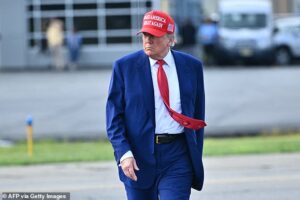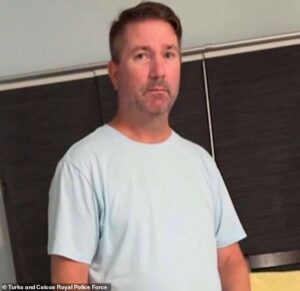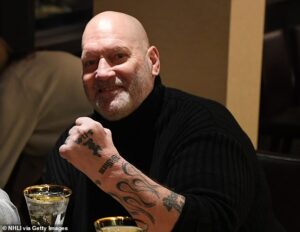

More than 5,000 Aussies who reinvested hundreds of millions of their superannuation into First Guardian Master Fund could struggle to get their nest eggs back after the company’s collapse.
Aussies like Juan Carlos Sanchez were convinced by financial advisory company Venture Egg to move their super savings from ANZ into a fund called AusPrac.
After shifting all his super, Mr Sanchez was told that withdrawals from his fund had been frozen since May 2024.
‘When I got that email (from AusPrac advising the superannuation money had been frozen), my stomach dropped — I just had this sick feeling,’ he said.
Mr Sanchez later discovered his super was not being reinvested to grow his retirement savings but was being sent into ‘a cash hub’ controlled by the directors of First Guardian Master Fund.
Mr Sanchez was one of 6,000 Aussies who invested $590million with First Guardian before it collapsed this year.
The Australian Securities and Investments Commission is investigating the company.
Investors were told to put their super into a retail choice superannuation fund and then invest part or all of it into First Guardian.
Falcon Capital Limited was responsible for the failed First Guardian fund.
Its former managing director was David Anderson and ASIC is investigating him after alleging he poured millions of investors’ retirement savings into his own failed property developments, craft breweries and to help celebrity chef Scott Pickett, of which he was a shareholder.
The Federal Court has appointed liquidators to Falcon Capital and Mr Anderson’s assets have been frozen and passports seized as investigators comb through financial records.
Mr Anderson and another director Simon Selimaj are banned from leaving Australia until 27 February 2026.
‘ASIC sought the orders to ensure Mr Anderson and Mr Selimaj remain in Australia to assist ASIC with its investigation and to preserve assets while ASIC’s investigation is continuing,’ the regulator said.
Public court documents obtained by ABC News revealed Mr Anderson moved $274 million into offshore companies tied to him after he was warned about ASIC’s investigation.
ASIC investigators have warned the money will be hard to find.
The regulator also alleged $5.6 million was put into Mr Anderson’s personal ANZ account ‘without any legitimate basis for payments in that amount being apparent to ASIC or disclosed to investors’.
He allegedly used $16,000 to make a mortgage payment on his multi-million-dollar home.
‘Falcon appears to continue to redeploy the limited funds it has received to illiquid investments, despite representations made to investors that it would fulfil redemption requests and reopen the First Guardian Master Fund for investment once the cash receivables are received,’ ASIC told the court.
ASIC also alleged Falcon may have deceived stakeholders about the security of their investment and possible returns.
Lawyers for Mr Anderson said ‘there have been no findings of fact or law by any court or tribunal, nor by ASIC’.
‘Mr Anderson will fully exercise his rights in response to allegations which may be made against him at the appropriate time in the appropriate forum,’ Dan Mackay of Mackay Chapman lawyers said.
ASIC found that in the ‘best-case scenario’ $81 million of investor funds were unaccounted for but accepted the money loaned to overseas businesses may never be recovered.
One investor stands to lose $677,000.
ASIC is also investigating Melbourne-based financial adviser Ferras Merhi who ran Venture Egg Financial Services and led thousands of clients into the First Guardian Fund.
The Federal Court has made interim orders freezing some assets of Mr Mehri who is linked to at least 2,440 clients who invested $179 million in First Guardian funds.
While telling clients to invest in First Guardian, Mr Merhi was also being paid to market the fund.
In court documents it was alleged Mr Mehri received more than $19 million in payments from First Guardian for marketing services.
Small business owner Greg McElherron could lose thousands of dollars and pleaded with the government to step in and protect superannuation investors.
‘Everyone is running for the hills trying to cover their backsides. It’s absolutely shameful,’ he said.
‘If you’re going to be not only encouraged but mandated to put money into your super, it should be protected.’






